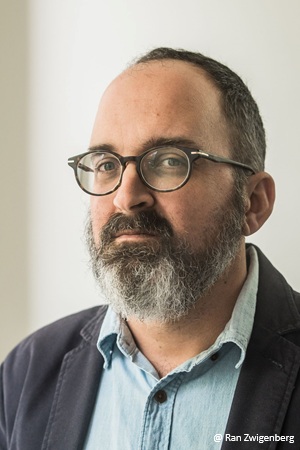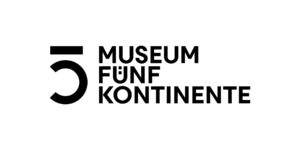
- Diese Veranstaltung hat bereits stattgefunden.
Vortrag von Prof. Ran Zwigenberg, Ph.D. „Hiroshima’s Transwar and the Architecture of Memory and Forgetting“

Der Vortrag findet im Rahmen der Sonderausstellung „Vom Inferno zum Friedenssymbol – 80 Jahre Hiroshima und Nagasaki“ im Museum Fünf Kontinente (4. Juli 2025 bis 11. Januar 2026) statt. Es handelt sich um die Wanderausstellung der Friedensgedächtnismuseen in Hiroshima und Nagasaki.
„Hiroshima’s Transwar and the Architecture of Memory and Forgetting“
Prof. Ran Zwigenberg, Ph.D. (Pennsylvania State University)
17. Juli 2025: 18:00 Uhr
Ort: Museum Fünf Kontinente, Maximilianstraße 42, 80538 München
Eintritt frei. Der Vortrag findet in Englischer Sprache statt. Eine vorherige Anmeldung ist nicht erforderlich.
Established in 1589, Hiroshima, like many other castle towns in Japan, evolved into an important military city (guntō) during the Meiji period. This transformation began with the establishment of the imperial headquarters at Hiroshima Castle during the First Sino-Japanese War. The military, the empire, and the emperor’s importance to the city were reflected in numerous monuments, archways, and buildings throughout the city, with Hiroshima Castle at its center, symbolizing both past and present martial glory. However, much of Hiroshima’s wartime infrastructure—both commemorative and operational—was obliterated in the American nuclear attack of August 1945, along with most of the civilian city center. In the aftermath, a new architectural and commemorative landscape emerged, consciously erasing and replacing Hiroshima’s historical ties to war and imperial conquest. The city redefined itself as Heiwa-to, or „peace city.“ This talk argues that Hiroshima’s postwar architecture of memory was also an architecture of forgetting. Just as prewar imperial narratives sought to shape communal identity, Hiroshima’s postwar elites imposed new grand narratives that, while celebrating peace, inadvertently silenced some critical voices while amplifying others. Unlike the prewar imperial state, postwar Japan allowed for dissent and critical discourse, making Hiroshima’s identity (re)formation a more complex and contested process. Contradictions, counter-narratives, and alternative representations continually emerged, challenging the city’s constructed image as a symbol of peace.
Ran Zwigenberg is professor of Asian Studies at Pennsylvania State University. His research focuses on modern Japanese and European history, with a specialization in memory and intellectual history. He has taught and lectured in the United States, Europe, Israel, and Japan, and published on issues of war memory, atomic energy, psychiatry, and survivor politics. Zwigenberg’s first book, Hiroshima: The Origins of Global Memory Culture (Cambridge University Press, 2014), won the 2016 Association for Asian Studies’ John W. Hall book award. His latest book, Nuclear Minds: Cold War Psychological Science and the Bombings of Hiroshima and Nagasaki (Chicago: University of Chicago, 2023) deals with the psychological aftermath of the atomic bombing of Hiroshima.
Eine Kooperation von LMU Japan-Zentrum und Museum Fünf Kontinente. Weitere Informationen finden Sie auch auf der Seite des Museum Fünf Kontinente.

